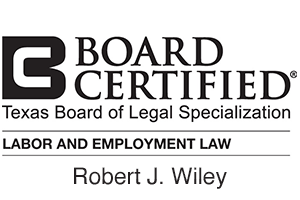in Austin, Texas
Serious Medical Condition
Austin Lawyers Knowledgeable in FMLA Disputes
Under the federal Family and Medical Leave Act (FMLA), eligible employees of covered employers are entitled to 12 weeks of job-protected and unpaid medical leave for “serious medical conditions.” The FMLA only applies to employers that have at least 50 employees for at least 20 workweeks in the current or prior calendar year. Only employees who have a serious medical condition are entitled to take this leave, and in some cases, employers misunderstand their obligations under this law. If you have a medical condition, you may be wondering what counts as a serious medical condition under the FMLA. At Austin Employment Lawyers, P.C., our Austin FMLA attorneys can provide knowledgeable legal counsel and representation in these claims.
Defining a Serious Medical Condition
The FMLA covers employees with serious health conditions. There are multiple categories of medical conditions that count as serious medical conditions under the FMLA. The first is defined as illnesses, injuries, impairments, or mental or physical conditions that involve inpatient care. Inpatient care is treatment that involves an overnight stay in a medical care facility. If you are admitted overnight to one of these facilities, it is an automatic trigger for FMLA eligibility.
Similarly, continuing treatment can be a basis for claiming a serious medical condition. This is care by a health care provider that results in an incapacity of more than three calendar days with either two or more in-person visits to a doctor or another health care provider, or one in-person session with a health care provider with a regimen of treatment that continues. Incapacity means that you cannot participate in your daily activity or work or go to school. The continuing regimen can include taking prescription drugs or participating in physical therapy. Your first visit to the health care provider needs to happen within seven days of the first date on which you are disabled by the serious medical condition.
Sometimes chronic conditions are covered if these conditions result in an episodic incapacity that lasts longer than three days. For example, if you have severe seizures as a result of epilepsy, this may be a chronic condition that qualifies as a serious medical condition. Similarly, if you have bouts of disability due to severe diabetes, this may count as a chronic condition.
A disability arising out of a pregnancy is FMLA-protected, regardless of how long you are disabled. For example, as a pregnant employee, you might not be able to go to work due to hyperemesis gravidarum. You can visit the doctor for prenatal care by using your FMLA leave as well. You do not need to be incapacitated to use the leave this way, and you can take FMLA leave to which you are entitled even for a routine checkup during your pregnancy.
Permanent conditions like terminal diseases, severe stroke, Alzheimer’s, or Parkinson’s would also count as serious medical conditions, as would medical conditions that require recovery from treatment, such as surgery or a course of cancer treatment. The question with a medical condition that causes multiple treatment sessions is whether the condition would require an absence of more than three days if it were not treated. In addition to taking leave for a serious medical condition that affects you, you may be able to take FMLA leave to care for a daughter, son, spouse, or parent who has a serious medical condition. The medical condition must be of the type described above.
There are some conditions that do not count as serious medical conditions unless there are complications that meet the other criteria described above. These include a common cold, flu, ear ache, upset stomach, cosmetic treatment, headaches, minor ulcers, periodontal disease, routine dental issues, or orthodontia problems.
FMLA Interference and Retaliation
If you have a serious medical condition, an employer may not interfere with your FMLA leave rights. Interference can include refusing to permit FMLA leave, refusing to certify FMLA leave, refusing to return you to your previous position, or requiring employees to engage in unreasonably onerous activity to assert FMLA rights.
Similarly, an employer may not retaliate against an employee for seeking FMLA leave or using FMLA leave for a serious medical condition. For example, an employer may use FMLA absences to discipline an employee for attendance violations.
Right to Return to Work
FMLA leave is job-protected leave. That means an employee who takes FMLA leave for a serious medical condition has the right, under most circumstances, to return to the same position. Furthermore, there are specific requirements regarding what medical documentation an employer can require during the leave and upon return from leave.
Retain an FMLA Lawyer in Austin to Assert Your Rights
If you suffer from a serious medical condition and believe your employer is interfering or retaliating against you regarding FMLA leave, you should consult our Austin attorneys. Austin Employment Lawyers, P.C. represents employees in cities such as Austin, Georgetown, Round Rock, Cedar Park, Pflugerville, Leander, Del Valle, Kyle, San Marcos, San Antonio, New Braunfels, and Fredericksburg. Call us at (512) 271-5527 or use our online form to set up an appointment. We can also help people who need a disability discrimination lawyer to fight back against mistreatment based on a medical condition.







